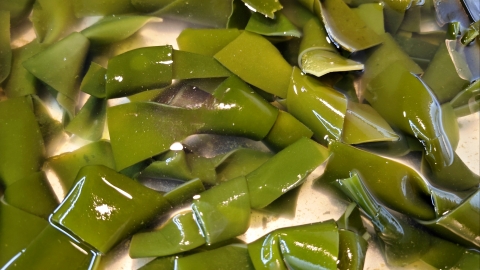Can I eat kelp if I have a thyroid nodule?
Generally, whether patients with thyroid nodules can consume kelp depends on their thyroid function status. Those with normal thyroid function can consume it in moderation, while those with hyperthyroidism or thyroid inflammation accompanied by nodules are not advised to do so. Detailed explanations are as follows:

Kelp is rich in iodine, which is an essential component for the synthesis of thyroid hormones. If a patient with thyroid nodules has normal thyroid function without conditions like hyperthyroidism or hypothyroidism, moderate consumption of kelp can help supplement iodine, maintain normal thyroid function, and generally will not significantly affect the nodule. However, excessive consumption should be avoided to prevent excessive iodine intake, which may increase the metabolic burden on the thyroid.
If a patient with thyroid nodules also has hyperthyroidism or suffers from autoimmune thyroid diseases such as Hashimoto's thyroiditis, consuming kelp is not recommended. These patients already have abnormal thyroid hormone secretion or immune dysfunction. The high iodine content in kelp may stimulate the thyroid gland, potentially worsening hyperthyroidism symptoms or triggering a thyroiditis episode, which is detrimental to disease management.
In daily life, patients with thyroid nodules should first clarify their thyroid function status before adjusting their diet. A balanced diet and increased intake of fresh vegetables are recommended.




